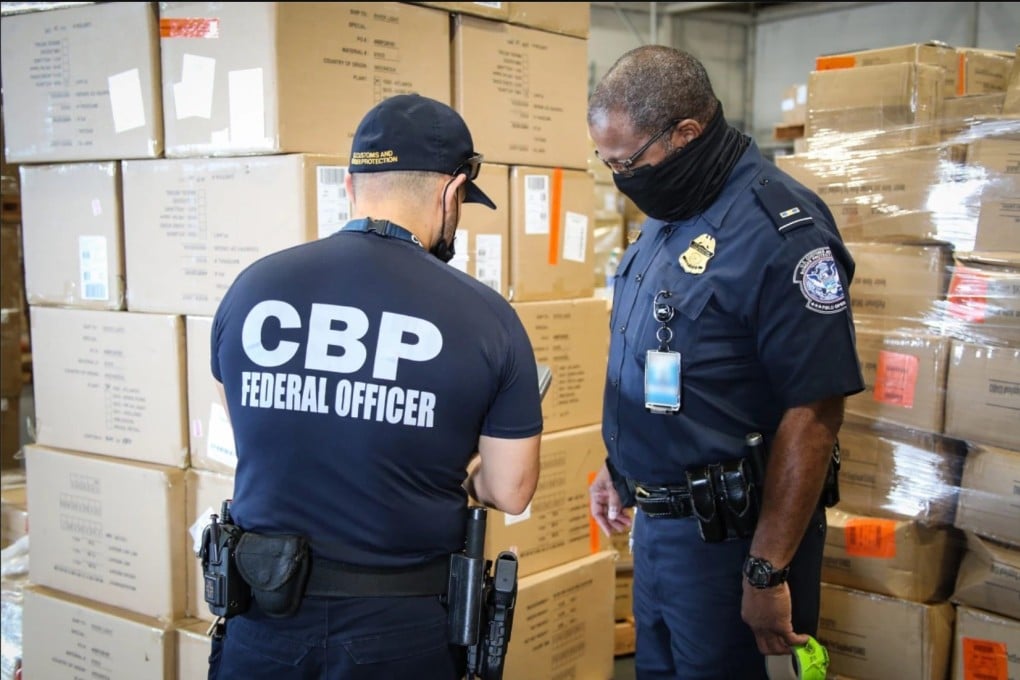Chinese firms are concealing exports’ Xinjiang ties, say US customs officials
- US Customs and Border Protection agency is trying to enforce a ban on imports from the region because of forced labour concerns, but officials acknowledge difficulties
- Cracking down on forced labour remains a foreign policy priority for the White House, as trade representative signs agreement with Japanese counterpart to work on issue

US customs officials say that administering a ban of imports from China’s Xinjiang region over forced labour concerns has become more difficult because Chinese firms are hiding the origins of goods made there.
“It has become normal operating procedure [for Chinese producers] to obfuscate the origin of goods from the XUAR” after the law went into effect, Diana Sassmann, an international trade analyst at US Customs and Border Protection, wrote in a blog post this week on the agency’s website. XUAR is the acronym for the Xinjiang Uygur autonomous region.
The comments come as the agency develops its enforcement of the 2021 Uygur Forced Labour Prevention Act and crack down on imports from Xinjiang – a vast area in far-western China where Beijing has been accused of carrying out forced labour schemes and other human rights violations against the region’s Uygurs and other ethnic minority groups. Beijing has repeatedly denied all allegations of forced labour in the region.
They also come as US President Joe Biden’s top trade official signed an agreement with Japan to help stop forced labour around the world, the latest sign that the administration would continue to keep the issue in its foreign policy agenda as the second half of Biden’s term begins.

The law went into effect in late June, and in the first few months of enforcement, many US and Chinese observers were surprised to see that – according to the Chinese government’s customs data – Xinjiang appeared to be sending even higher volumes of goods to the US than before the law.